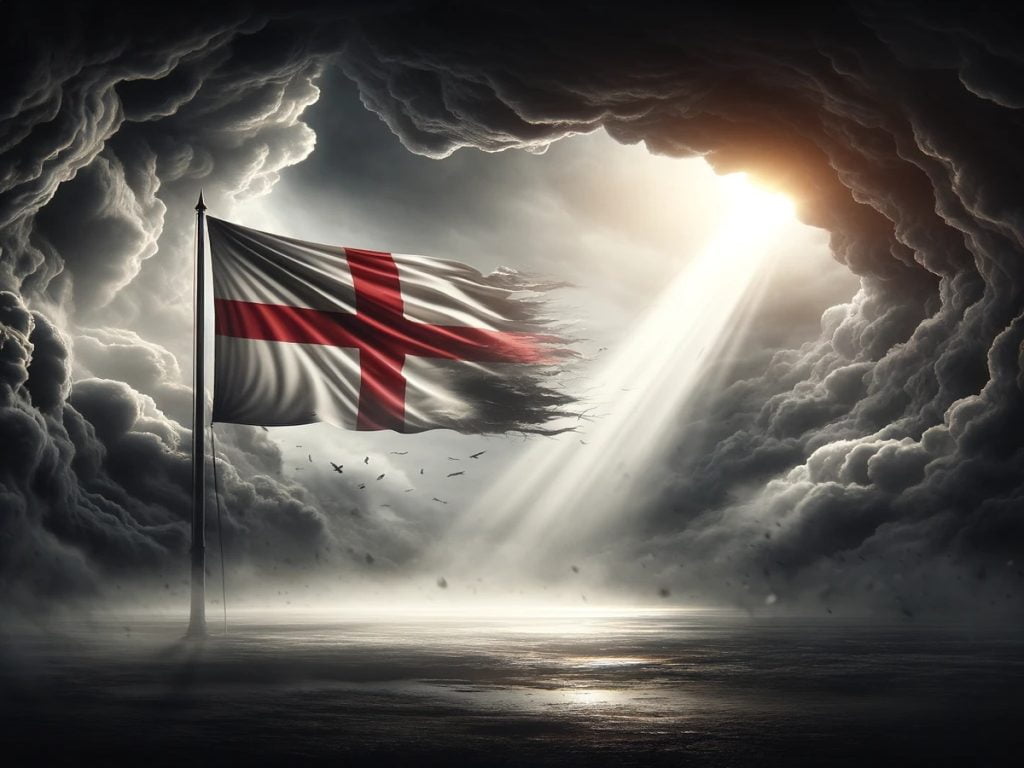St. George’s Day, celebrated on April 23rd, stands as a poignant symbol of patriotism and nationalism in England. It honours shared values, heritage, and identity, encapsulating Englishness and Britishness. This day serves as a reminder of the unity and pride inherent to the English people, sentiments that are increasingly crucial in a world facing complex global challenges and diverse cultural identities, some of which are unfortunately hostile towards Englishness and Britishness. The celebration of our national spirit is sharply contrasted by instances of discord and division, as seen in anti-English and anti-British demonstrations, including those expressing pro-Hamas sentiments.
Patriotism is about a deep-seated love for one’s country, pride in its history, commitment to its future, and a willingness to defend it. In this spirit, St. George’s Day resonates, offering not just a day for celebration but also a moment for national reflection on the values that define English identity. Yet, this sense of national pride is tested by events that seemingly reflect an incompatibility of certain groups with the values of Englishness and Britishness, showcasing divisions within the societal fabric and exposing non-integrated ‘parallel societies’ living within our borders.
Nationalism, when grounded in positive values, promotes a sense of belonging and common purpose. It celebrates England’s achievements and traditions, underpinning the nation’s contributions both domestically and globally. This form of nationalism champions democracy, freedom, tolerance, and respect — values foundational to the English and British identity, but it does so without tolerating intolerance. The juxtaposition against demonstrations perceived as anti-English or anti-British, and those showing support for groups like Hamas, designated as a terrorist organization by various countries, underscores a clash of values. It brings to light the challenges of integrating diverse viewpoints within a unified national identity.
Celebrating St. George’s Day thus becomes an act of reaffirmation of England’s collective identity, an assertion of the shared values and resilience that have defined its history and will shape its future. It is an opportunity to celebrate the spirit of the English people — their creativity, courage, community, contributions to Western culture, and leadership on the world stage. Yet, it also presents a moment to reflect on the complexities of integrating diverse cultures and perspectives into a cohesive national narrative.
The observance of St. George’s Day, with its community gatherings, parades, and cultural festivities, embodies the positive aspects of nationalism and patriotism. These celebrations testify to the enduring relevance of the day, fostering a sense of pride and solidarity. However, the contrast provided by demonstrations that seem at odds with these values highlights the ongoing conversation about identity, belonging, and the challenges of creating a society that respects and incorporates diversity while refusing to tolerate the intolerant.
In the spirit of St. George, it is essential to remember who we are as a people and as a nation, focusing on values that bind the English and British people together. As England looks to its future, the celebration of St. George’s Day offers a moment to make England great again, as a beautiful sea of red, white, and blue takes over our capital city.
Make sure you’re in London on the 23rd of April in Whitehall before 3pm for a celebration of England, Englishness and Britishness.





